Inside the bullet-riddled home of Nnamdi Kanu [Pulse Exclusive]
)
Four years after soldiers reportedly raided the Afara-ukwu, Umuahia residence of separatist leader Nnamdi Kanu in Abia State, the bullet holes are still visible on the walls, on the roofs and around the courtyard.
The damaged and ransacked cars are still in the parking lot.
The decapitated and damaged sculptures and picture frames have been left that way, the overturned and damaged furniture inside Kanu's bedroom remain that way and the shattered window panes remain in place--with shards of glasses dangling from the sills--even though much of the exterior of the house has been given a facelift.
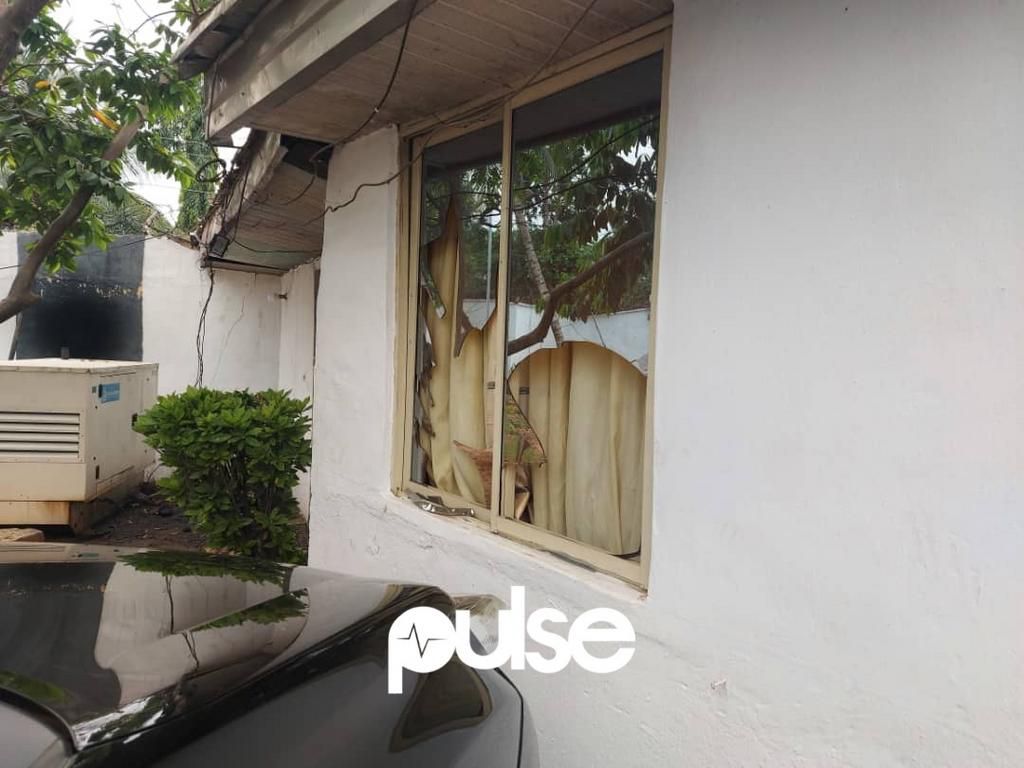
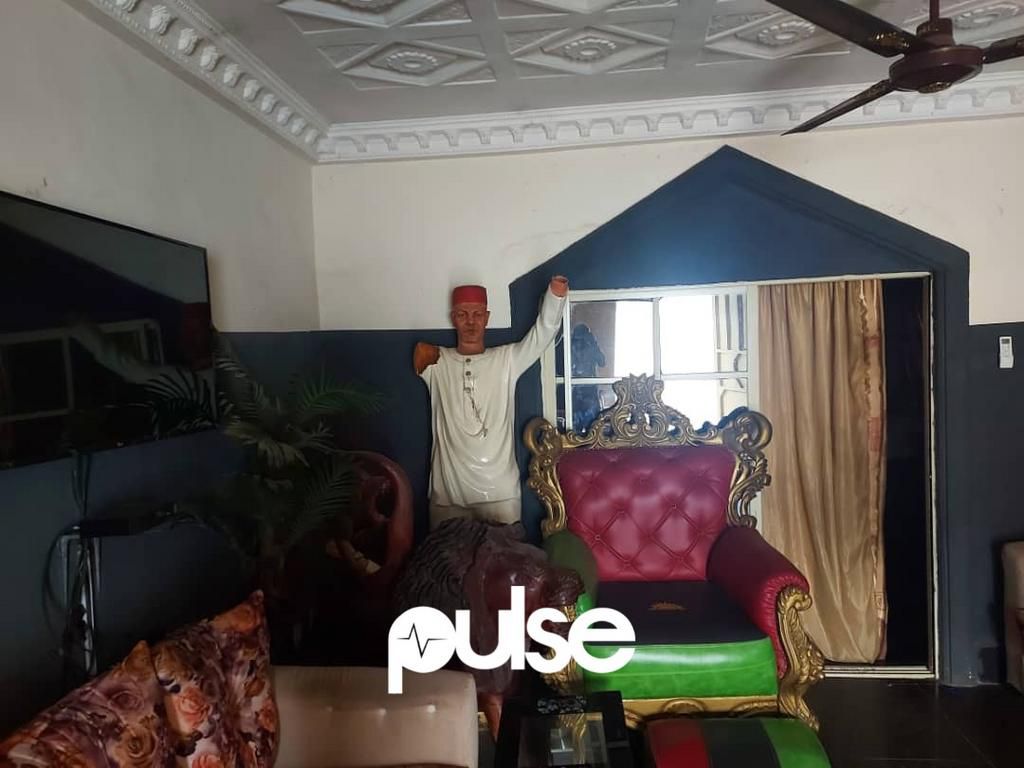
When Pulse visited Afara-ukwu in 2017, shortly after the army's 'Operation Python Dance' campaign in the southeast, the pathway that led to the home of the Kanus was a lonely, narrow alley of red earth, stones and rural vegetation; and the street reeked of Banga soup, starch and rotting mango fruits.
Today, the street has been paved and the entire driveway is a smooth ride.
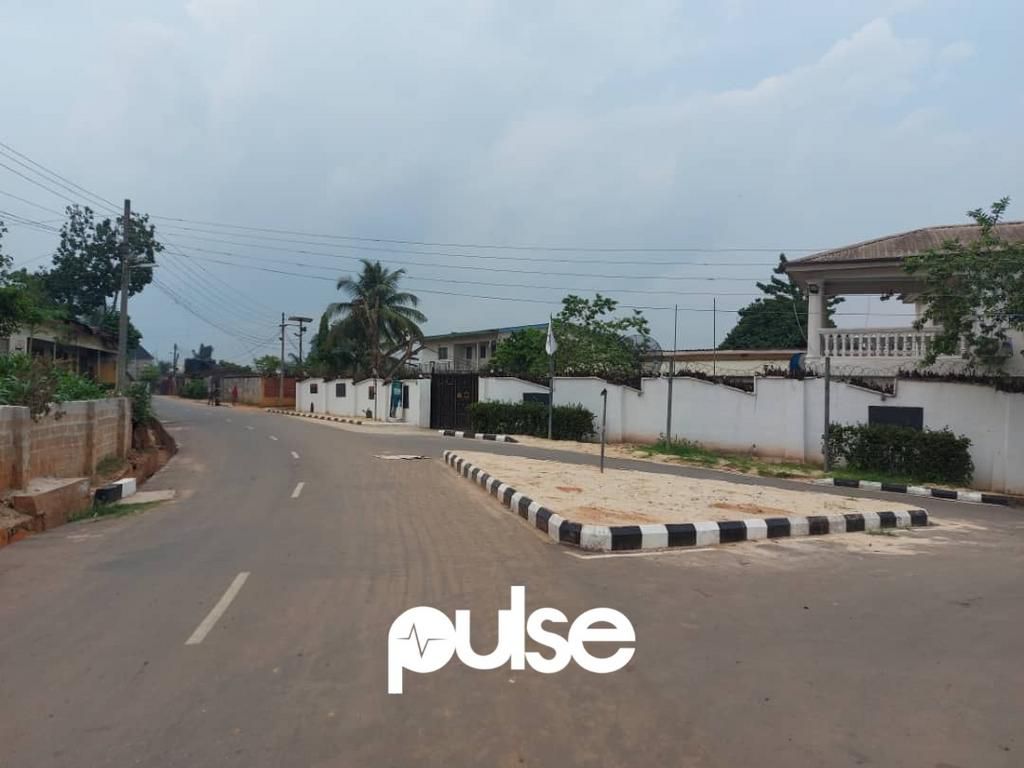
The words 'IPOB hardcore worldwide' are inscribed indelibly on the gate that opens into Kanu's compound and a flag of the separatist Biafra movement dangles from the roof that leads into the living room.
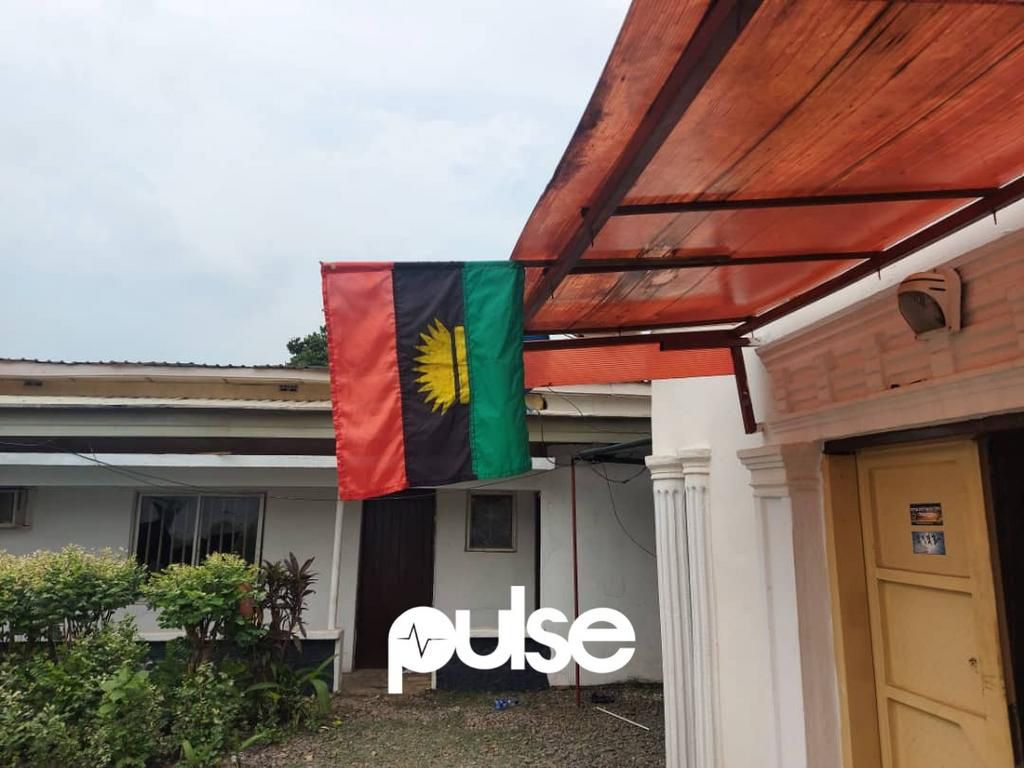
Two menacing-looking men with huge biceps, stand sentry behind the gate and patrol the premises, the IPOB emblem tattooed on their bodies and foreheads.
Kanu's sister, who wouldn't give us her name, sits on a sofa in the living room with her children, forlorn and depressed. She and what has been left of their family, have been crying for his return, she says.
She wouldn't say much to us until we leave.
"We don't agree with Kanu's ways or methods but we understand his struggle," says Kenechukwu, who has been driving Pulse round Abia and Imo as we talk to locals about the recent Biafra agitation that has turned much of the southeast into a war zone and wasteland.
"All we want here is good governance and the dividends of democracy. We want President Buhari to realise that Igbo-land is still part of Nigeria. That we are as Nigerian as the herdsmen in his region who have been killing people, but who are yet to be officially labelled terrorists," he adds.
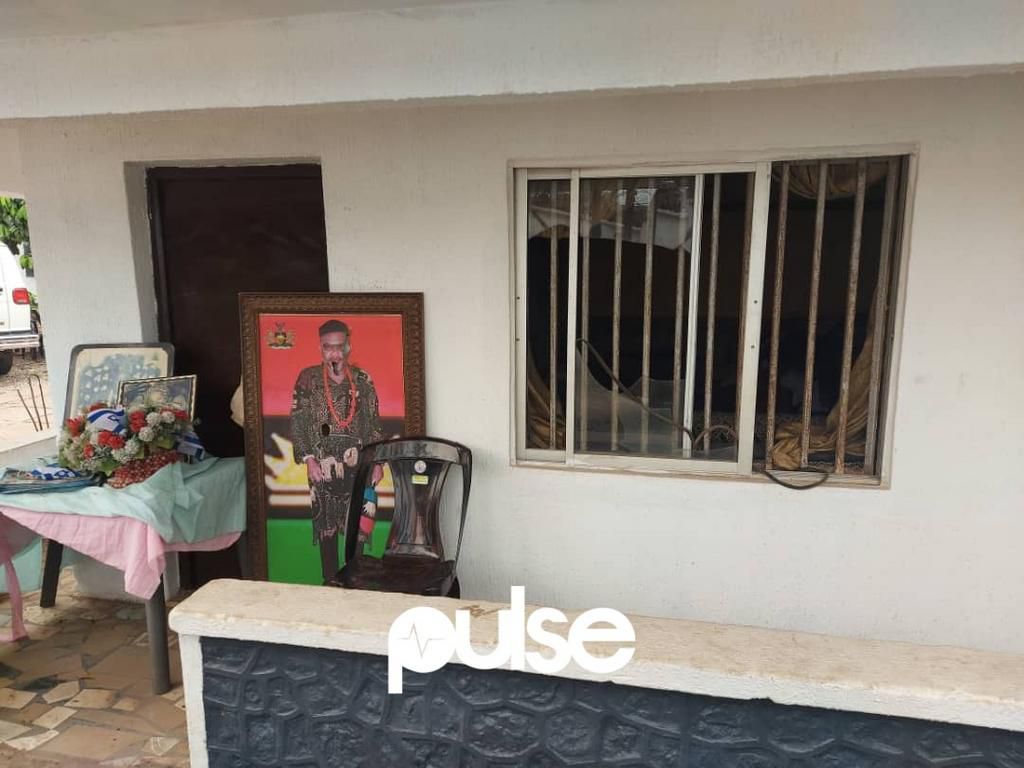
Kanu's Indigenous People of Biafra (IPOB) was proscribed and designated a terrorist organisation after Kanu had been put on trial for treasonable felony, terrorism, managing an unlawful society, publication of defamatory matter, illegal possession of firearms, improper importation of goods, among other charges.
Kanu fled his Afara-ukwu home shortly before the 2017 invasion and after he had flouted all the bail conditions handed to him.
Once abroad and safe in his hideout, the fugitive resumed his inflammatory rhetoric and intense hate campaign against Nigeria, while raining curses on the country's political leaders and labeling his nation a 'Zoo'.
“I went underground because my house was raided,” he told the court on June 29, 2021, after his re-arrest. “I had to escape, otherwise I’d have been killed.”
No one is quite sure how Kanu was re-arrested after his escape to Israel, the UK and Germany.
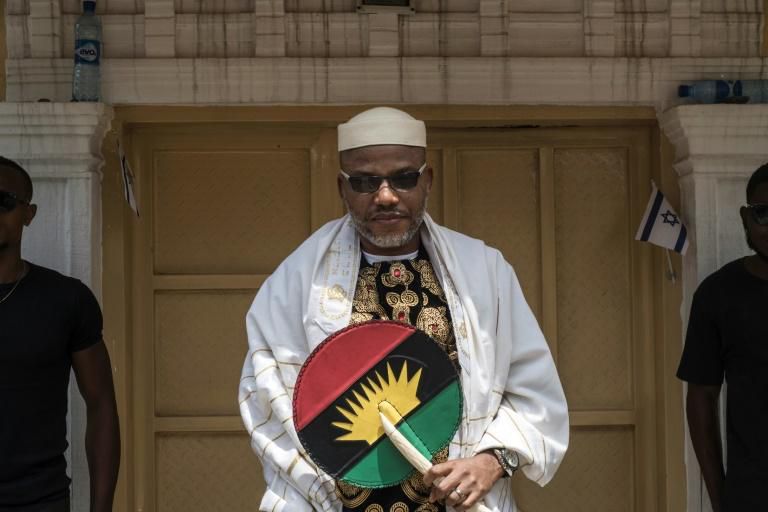
It is yet unclear whether Nigeria reached an extradition treaty with any one of the countries that had given Kanu shelter after he fled Nigeria.
IPOB's media secretary, Emma Powerful, tells the New York Times that he had last spoken to Kanu two days ago, but that he did not know where he was calling from.
Next thing he knew, pictures of the 54-year-old Kanu bedecked in a designer Fendi tracksuit and in handcuffs, were circulating on social media.
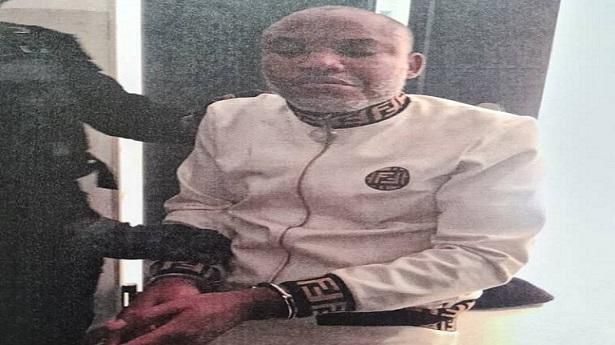
“The saboteurs among us tried to lure our leader into another trap,” Powerful says.
Some reports say Kanu was tricked by one country's security agency and Interpol to a secret location to receive "millions of dollars" in cash as donation to his secessionist cause. From here, he was arrested and deported to Nigeria.
"He was said to have decided to collect the money himself because of the huge amount involved," TheCable writes.
Nigeria's federal government is yet to offer details on how and where Kanu was re-arrested, at the time of publishing this story.
Kanu's next trial date is July 26, 2021. At the moment, he remains in the custody of the Department of State Services (DSS).

![Aisha blows hot on Security forces; Y7ou won't believe what she said [VIDEO]](https://image.api.sportal365.com/process/smp-images-production/pulse.ng/17082024/1f976edf-1ee2-4644-8ba1-7b52359e1a8f?operations=autocrop(640:427))
)
)
)
![Lagos state Governor, Babajide Sanwo-Olu visited the Infectious Disease Hospital in Yaba where the Coronavirus index patient is being managed. [Twitter/@jidesanwoolu]](https://image.api.sportal365.com/process/smp-images-production/pulse.ng/16082024/377b73a6-190e-4c77-b687-ca4cb1ee7489?operations=autocrop(236:157))
)
)
)
)
)
)
)
)
)
)
)